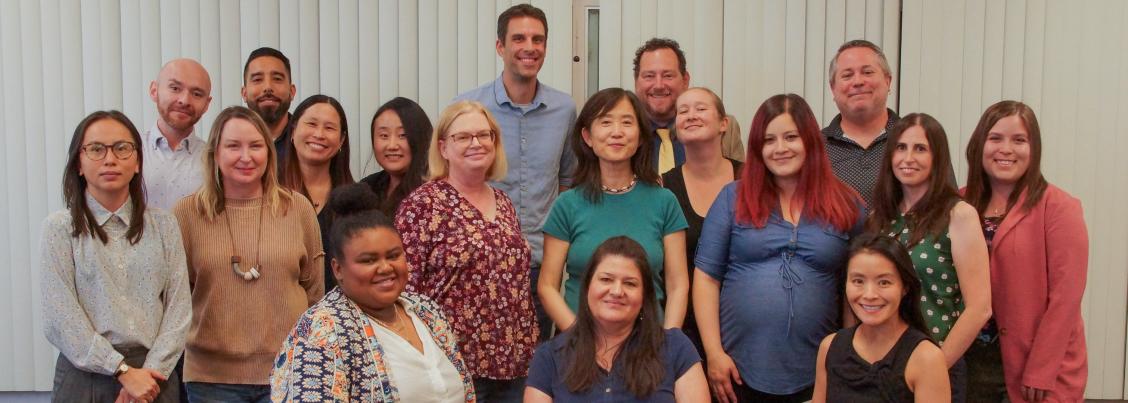
Biography
Education
- Ph.D. 1997, University of California, Santa Barbara (Psychology)
- M.A. 1994, University of California, Santa Barbara (Psychology)
- B.A. 1992, California State University, Chico (Psychology and Mathematics)
Specialty Areas: Cognition.
**Currently not accepting new undergraduate research assistants.
Selected Publications and Presentations
- Corral, D., Quilici, J.L., & Rutchick, A. M. (2019). The effects of early schema acquisition on mathematical problem solving. Psychological Research, https://doi.org/10.1007/s00426-019-01164-8.
- Avila, J., Flowers, A., Shivley-Scott, T., Quilici, J., Apostolova, L. G., Woo, E., Ringman, J., & Razani, J. (2015). Daily activity abilities in MCI, Alzheimer’s disease and healthy controls. Journal of Gerontopsychology and Geriatric Psychiatry, 28, 191-200.
- Plunkett, S. W., Saetermoe, C. L., & Quilici, J. L. (2014). An evaluation of the undergraduate Career Opportunities in Research (COR) Program. CUR Quarterly, 35 (1),36-42.
- Razani, J., *Corona, C., Quilici, J., *Matevosyan, A., *Funes, C., *Larco, A., *Miloyan, B., *Avila, J., Chung., J., Goldberg, H., & Lu, P. (2014). The effects of declining functional abilities in dementia patients and increases in psychological distress on caregivers’ burden over a one-year period. Clinical Gerontologist, 37(3), 235-252.
- Quilici, J. L. & Mayer, R. E. (2002). Teaching students to recognize structural similarities between statistics word problems. Applied Cognitive Psychology, 16, 325-342.
- Nikolova, A. G. & Quilici, J. L. (2001). Effects of high and low saturation of red hue on long-term memory performance. Psi Chi Journal of Undergraduate Research, 6, 101-108.
- Hegarty, M., Quilici, J., Narayanan, N. H., Holmquist, S., & Moreno, R. (1999). Multimedia instruction: Lessons from evaluation of a theory-based design. Journal of Educational Multimedia and Hypermedia, 8, 119-150.
- Mayer, R. E., Quilici, J. L., & Moreno, R. (1999). What is learned in an after-school computer club? Journal of Educational Computing Research, 20(3), 223-235.
- Mayer, R. E., Quilici, J., Moreno, R., Duran, R., Woodbridge, S., Simon, R., Sanchez, D., & Lavezzo, A. (1997). Cognitive consequences of participation in a "Fifth Dimension" after-school computer club. Journal of Educational Computing Research, 16(4), 353-369.
- Quilici, J. L., & Mayer, R. E. (1996). Role of examples in how students learn to categorize statistics word problems. Journal of Educational Psychology, 88(1), 144-161.
Research Interests
My research interests lie in the area of cognitive processes, decision making, problem solving, expertise, knowledge representation, and analogical reasoning. My current primary research interest is in the area of decision making. In particular, I am interested in the issue of how people make decisions about their nutritional intake. At a theoretical level, I am interested in the decision-making process and what factors influence our decisions to stick with or abandon healthy eating goals in our daily lives. At a practical level, I am interested in studying potential environmental or educational interventions designed to promote healthier eating decisions with the goal of reducing obesity.
More generally, I am interested in how we can use our knowledge of human cognition to design interventions in practical settings. What can we do to promote effective decision-making that will be consistent our goals in health settings? In educational settings? How can we help people to learn from past experiences and use them effectively to make decisions or solve problems in new situations?
Research assistants in my lab will get experience assisting with literature review, data collection, data scoring, data entry, and data analysis for a variety of data types. In addition, students who are motivated to be more active participants in the lab can be involved in designing research studies (including thesis projects), designing stimulus materials for experiments, preparing and presenting research findings at conferences, and preparing research findings for publication.




